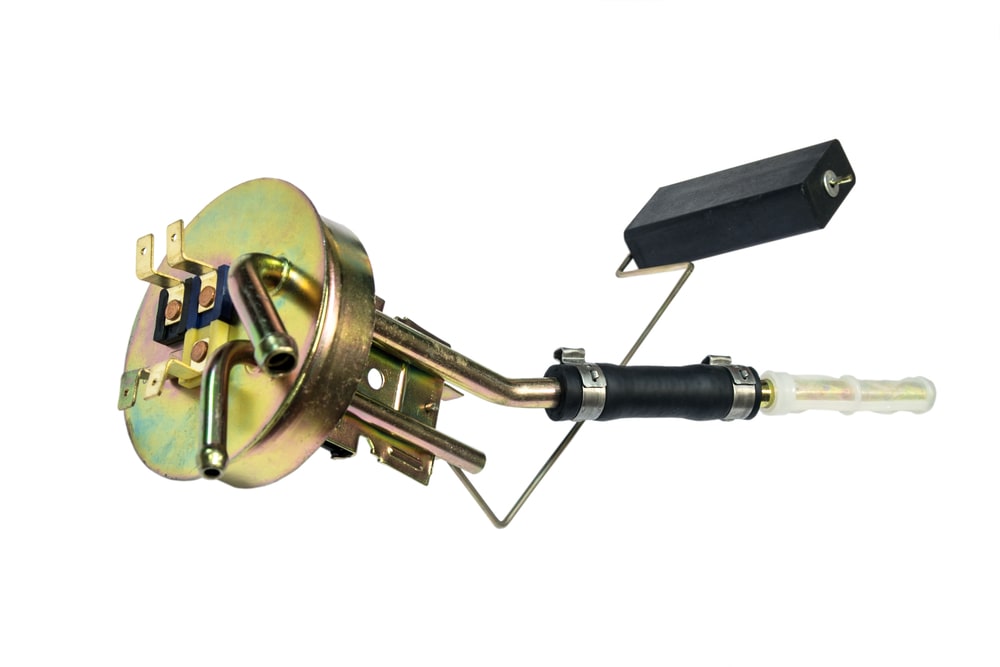

The fuel gauge sender is a component that is found in the gas tank of most road going vehicles. The fuel gauge sender, also commonly referred to as the fuel sending unit, is the component responsible for sending the signal that operates the fuel level gauge in the instrument cluster. The fuel sending unit is made up of an arm, float, and a resistor that changes according the position of the float. The sender float is designed to float on the surface of the fuel inside of the tank. As the level drops, the position of the arm and float will shift and move a resistor which controls the display on the gauge. When the fuel sending unit has an issue it can cause the vehicle to experience issues with the fuel gauge, which can put the vehicle at risk of running out of fuel. Usually a bad or failing fuel gauge sender will produce a few symptoms that can alert the driver of a potential issue.
1. Fuel gauge behaves erratically
One of the first symptoms of a problem with the fuel gauge sender is a fuel gauge that behaves erratically. A faulty fuel gauge sender may cause the gauge to suddenly change positions, or give an inaccurate reading. The gauge may appear to be at three quarters, and then only a few minutes later will change to half full, or vice versa the gauge may appear to be full, only to have the gauge climb higher a short while later.
2. Fuel gauge stuck on empty
Another common symptom of a faulty fuel gauge sender is a gauge that is stuck on empty. If the float somehow breaks or becomes separated from the arm it may cause the fuel gauge to malfunction and become stuck on empty. A faulty resistor can also cause the gauge to read empty.
3. Fuel gauge stuck on full
Another, less common, symptom of an issue with the fuel gauge sender is a fuel gauge that is stuck on full. A faulty fuel gauge resistor can send a bad signal to the instrument cluster which can cause the gauge to permanently read full. This is an issue, as the driver needs to know the accurate fuel level of the vehicle as to not run out of fuel.
The fuel sending unit is not a routinely serviced component, usually only serviced when it, or the fuel pump fails, however it does play an important role to the proper operation of the vehicle. If you fuel gauge is displaying any of the symptoms, or you suspect that there may be an issue with this unit, have the vehicle inspected by a professional technician, such as one from YourMechanic, to determine if the fuel gage sender should be replaced.



